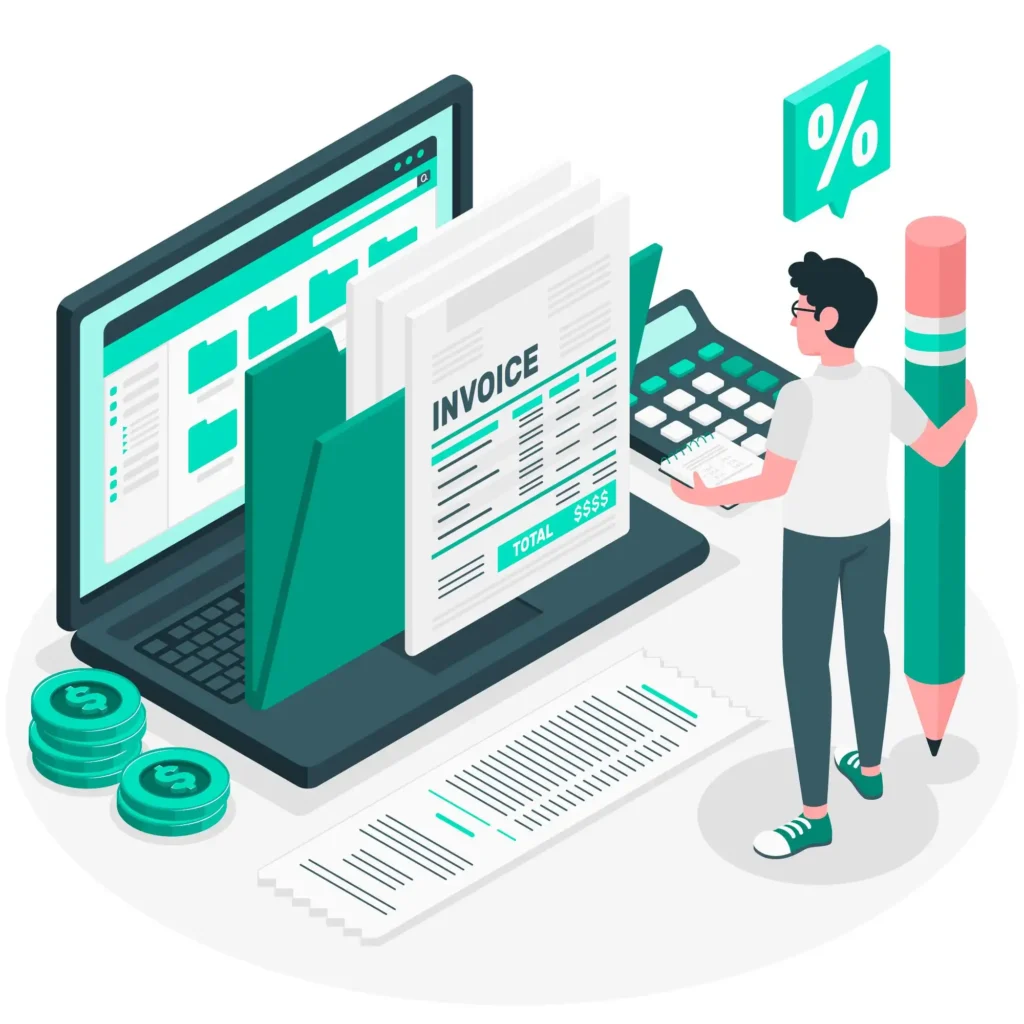When I ventured into the world of e-commerce, I quickly realized that practical accounting was the backbone of a successful online business. In this article, I will walk you through the intricate terrain of e-commerce accounting, providing valuable insights and actionable tips to ensure your online venture thrives financially.
Why E-commerce Accounting Matters
As an e-commerce entrepreneur, understanding the financial health of your business is paramount. Accurate accounting helps you make informed decisions, ensures compliance with tax regulations, and provides insights into your profitability.

Setting Up Your E-commerce Accounting System
Choosing the Right Accounting Software
Investing in reliable accounting software tailored to e-commerce is your first step. Tools like QuickBooks Online or Xero can simplify your financial management.
Organizing Your Financial Data
Efficiently categorizing and organizing your financial data will save you countless hours. Proper labelling of income and expenses is key.

Managing Sales and Revenue
Tracking Online Sales
Implementing a robust system to track sales, including customer details and transaction history, helps in customer relationship management and financial tracking.
Handling Multiple Payment Methods
In the diverse e-commerce landscape, accommodating various payment methods is essential. Keep a close eye on payment processing fees and reconcile your transactions.

Inventory Management
Accurate Inventory Valuation
Maintaining an accurate inventory valuation is crucial for both financial reporting and tax purposes. Employ the FIFO or LIFO method as per your business needs.
Managing Stock Levels
Avoid overstocking or understocking by employing inventory management tools that provide real-time data on stock levels and trends.
Expenses and Cost Tracking
Overheads and Operating Costs
Identify and monitor all operational expenses, from website hosting fees to marketing expenses, to gauge your profit margins accurately.
Supplier Payments
Timely payments to suppliers ensure a smooth supply chain. Automate payments where possible to prevent delays.
Tax Compliance
Understanding Sales Tax
Navigate the complex world of sales tax by comprehending your tax obligations in different states or countries where you conduct business.
International Tax Considerations
If you sell globally, stay updated on international tax laws and treaties that may affect your e-commerce business.
Financial Reporting
Balance Sheets and Income Statements
Regularly review your balance sheets and income statements to assess your financial performance and identify areas for improvement.
Cash Flow Analysis
Cash flow analysis helps understand the inflow and outflow of funds, ensuring you have enough liquidity to cover expenses.
Auditing and Record-Keeping
Importance of Documentation
Maintain meticulous records of all financial transactions. These records will prove invaluable in case of audits or disputes.
Regular Audits
Periodic internal and external audits can help you identify discrepancies and ensure the accuracy of your financial data.
E-commerce Accounting Tools
Integration with E-commerce Platforms
Choose accounting software that seamlessly integrates with your e-commerce platform to automate data syncing.
Advanced Reporting Tools
Explore advanced reporting tools to gain deeper insights into your financial data and make more informed decisions.
Fraud Prevention and Security
Protecting Financial Data
Implement robust cybersecurity measures to safeguard sensitive financial information from potential breaches.
Monitoring Suspicious Activities
Regularly monitor your accounts for unusual or suspicious activities, such as unauthorized access or fraudulent transactions.
Scaling Your E-commerce Business
Adapting to Growth
As your e-commerce business grows, adapt your accounting processes to accommodate increased sales and complexities.
Financial Planning for Expansion
Plan your finances strategically to fund growth initiatives and expansions effectively.
Hiring E-commerce Accountants
In-House vs. Outsourcing
Consider hiring an in-house e-commerce accountant or outsourcing your accounting needs to a specialized firm.
Qualities to Look for
When hiring an e-commerce accountant, look for expertise in e-commerce tax laws and proficiency with e-commerce accounting software.
Common E-commerce Accounting Mistakes to Avoid
Mixing Personal and Business Finances
Keep personal and business finances separate to avoid confusion and potential tax issues.
Neglecting Tax Obligations
Stay current with tax deadlines and requirements to avoid penalties and legal complications.

Conclusion
In the dynamic realm of e-commerce, mastering accounting is essential for the success and longevity of your online business. By following these essential tips, you can confidently navigate the complexities of e-commerce accounting and ensure the financial health of your venture.
FAQs
Do I need accounting software for my e-commerce business, even if it’s small?
Yes, accounting software can streamline financial processes and help you stay organized, regardless of your business size.
How often should I reconcile my e-commerce transactions?
It’s advisable to reconcile your transactions weekly or monthly to catch any discrepancies early.
What are the key financial reports I should review regularly?
Focus on your balance sheets, income statements, and cash flow statements for a comprehensive overview of your finances.
Is outsourcing e-commerce accounting cost-effective?
Outsourcing can be cost-effective and allows you to tap into specialized expertise without hiring full-time staff.
What are the consequences of neglecting sales tax in e-commerce?
Neglecting sales tax obligations can lead to fines, penalties, and legal issues, making it essential to stay compliant.






